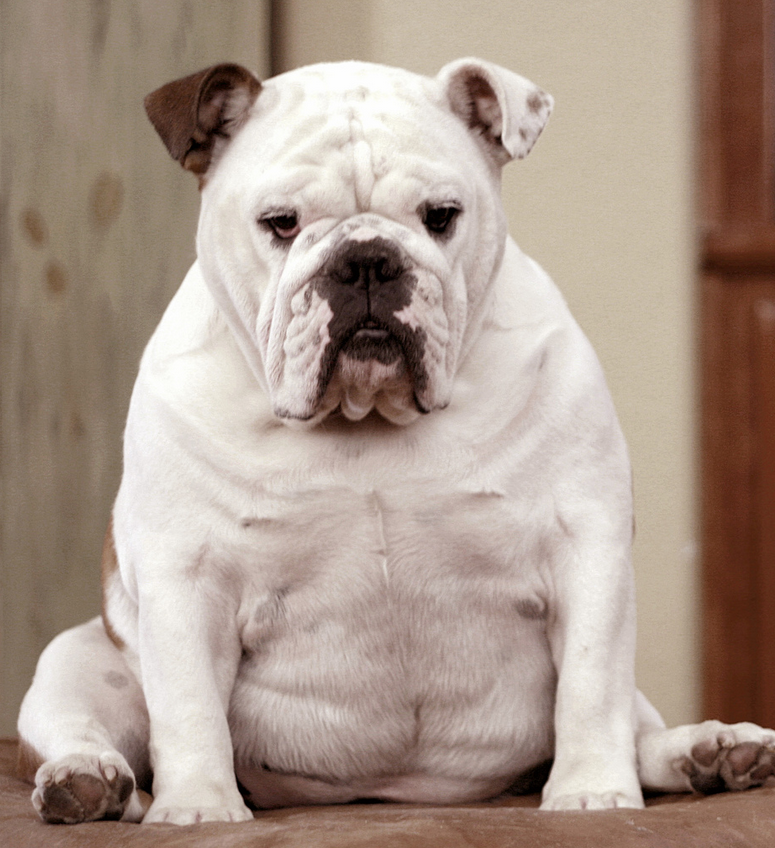The fat bulldog has become a beloved figure in many households, captivating the hearts of pet lovers around the world. With their wrinkled faces, stocky bodies, and irresistible charm, these dogs often find themselves at the center of attention. However, their adorable appearance can sometimes mask serious health concerns related to their weight. Understanding the balance between their endearing qualities and the responsibilities of pet ownership is essential for those considering bringing a fat bulldog into their lives.
As we delve into the world of fat bulldogs, we will explore their history, health considerations, and how to ensure that these lovable pets lead happy, healthy lives. From their origins as working dogs to their current status as cuddly companions, the fat bulldog has certainly earned its place in our hearts. Yet, it’s crucial to remember that their unique physique requires proper care and attention to maintain their well-being.
In this article, we will answer common questions surrounding fat bulldogs, providing insights into their needs, training, and lifestyle. Whether you're a current bulldog owner or considering adopting one, this guide will equip you with the knowledge to nurture and enjoy your fat bulldog’s company while keeping their health in check.
What is the History of the Fat Bulldog?
The fat bulldog, often referred to simply as the bulldog, has a rich and storied history that dates back to the 13th century. Originally bred for bull-baiting, these dogs were known for their strength and determination. Over the years, as bull-baiting was banned, the bulldog's purpose shifted from a fierce fighter to a loyal companion. Selective breeding led to the development of the fat bulldog we know today, characterized by its loose skin, wide head, and stocky build.
What Are the Distinctive Features of a Fat Bulldog?
Fat bulldogs are easily recognizable due to their unique physical traits. Here are some of their most distinctive features:
- Short, stocky stature
- Wrinkled face with a pushed-in nose
- Loose skin covering their bodies
- Broad shoulders and muscular build
- Short legs and a wide stance
What Are the Health Concerns Related to Fat Bulldogs?
While fat bulldogs are undeniably cute, their body structure can lead to several health issues, particularly if they become overweight. Some common health concerns include:
- Respiratory problems due to their short snouts
- Joint issues related to their weight
- Skin conditions caused by excess folds
- Heart disease and obesity
How Can You Maintain a Healthy Weight for Your Fat Bulldog?
Maintaining a healthy weight for your fat bulldog is crucial for their overall well-being. Here are some tips to help manage their weight:
- Provide a balanced diet with quality dog food.
- Monitor portion sizes and avoid overfeeding.
- Incorporate regular exercise into their daily routine.
- Consult with a veterinarian for personalized dietary recommendations.
What Should You Know About Training a Fat Bulldog?
Training a fat bulldog can be both rewarding and challenging. Here are some key points to consider:
- Start training early, as bulldogs can be stubborn.
- Use positive reinforcement techniques to encourage good behavior.
- Be patient and consistent in your training efforts.
- Focus on short training sessions to prevent fatigue.
What Are the Best Activities for Your Fat Bulldog?
Fat bulldogs enjoy various activities that can help keep them fit and entertained. Some ideal activities include:
- Short walks to prevent overexertion
- Interactive playtime with toys
- Gentle swimming sessions (if they enjoy water)
- Training exercises to stimulate their minds
What Are the Unique Personality Traits of a Fat Bulldog?
Fat bulldogs are known for their lovable personalities. Some common traits include:
- Affectionate and loyal to their owners
- Playful and mischievous
- Calm and relaxed, often enjoying lounging around
- Good with children and other pets
What Should You Consider Before Adopting a Fat Bulldog?
Before bringing a fat bulldog into your home, consider the following factors:
- Time commitment for training and exercise
- Financial responsibility for food and veterinary care
- Living space suitability for a bulldog's needs
- Adaptability to your lifestyle and family dynamic
Personal Details and Bio Data of a Famous Fat Bulldog
| Name | Winston |
|---|---|
| Breed | Bulldog |
| Age | 5 years |
| Owner | John Doe |
| Weight | 65 lbs |
| Favorite Food | Chicken and Rice |
| Hobbies | Sleeping, playing fetch, and eating treats |
In conclusion, the fat bulldog is a delightful companion that brings joy and laughter into our lives. However, it is vital to prioritize their health and well-being by providing proper care, training, and a balanced lifestyle. By understanding their needs and addressing potential health concerns, you can ensure that your fat bulldog remains a happy and healthy member of your family for years to come.
Discovering The Allure Of Cargo Beauty: A Journey Through Makeup Innovation
Unveiling The Charisma Of Jaylene XO: A Journey Through Her Life And Career
Unveiling The World Of Barber Celebrities: A Cut Above The Rest


